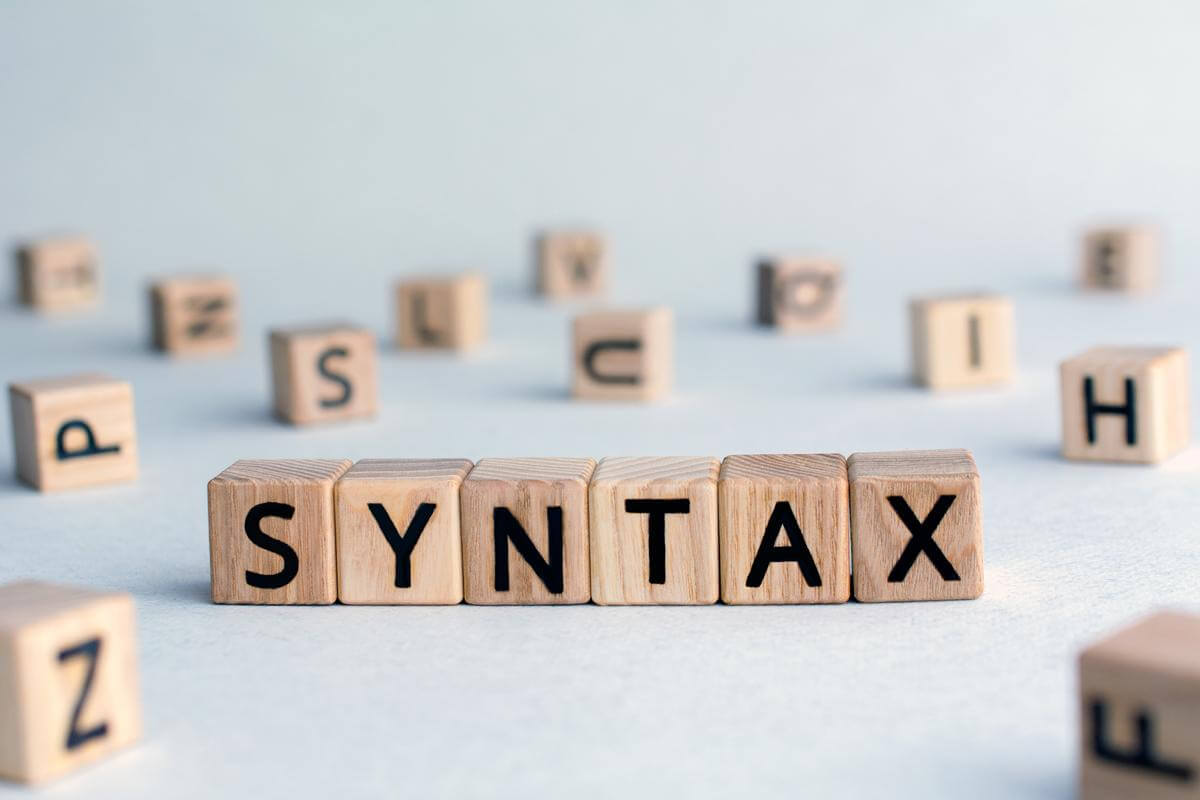
Syntax is the set of rules and principles that govern the arrangement of words and phrases in a sentence to form a grammatically correct and meaningful statement. It is an essential aspect of language that allows us to communicate effectively with one another.
Syntax And Its Role In Language
Syntax plays a crucial role in language as it governs the way in which we construct meaningful sentences. By following the rules of syntax, we can form sentences that are grammatically correct and convey a specific meaning. Syntax helps us to organize our thoughts and ideas, allowing us to express ourselves in a clear and concise manner.
In addition, syntax also allows us to distinguish between different types of sentences, such as statements, questions, and commands. By understanding the different types of syntax that exist, we can use language more effectively to communicate our thoughts and ideas to others.
Parts Of Speech In Syntax
The parts of speech are the building blocks of syntax, and they are used to create sentences that have meaning. There are eight parts of speech in english, including nouns, verbs, adjectives, adverbs, pronouns, prepositions, conjunctions, and interjections.
Each part of speech has a specific role to play in syntax, and the way that they are used in a sentence can have a significant impact on its meaning. For example, verbs are used to express an action or a state of being, while nouns are used to identify people, places, or things.

Word Order In Syntax
One of the most important aspects of syntax is word order, which refers to the way in which words are arranged in a sentence. The order in which words appear in a sentence can have a significant impact on its meaning and can affect how well it is understood by others.
In english, the typical word order is subject-verb-object (svo), which means that the subject of the sentence comes first, followed by the verb, and then the object. However, there are many exceptions to this rule, and different languages use different word orders depending on their syntax.
Types Of Sentences In Syntax
There are four main types of sentences in english, including declarative, interrogative, imperative, and exclamatory. Each of these sentence types has a different syntax and is used to express a specific type of meaning.
Declarative sentences are used to make statements, while interrogative sentences are used to ask questions. Imperative sentences are used to give commands, and exclamatory sentences are used to express strong emotions.
Syntax Specific To Programming Languages
While syntax is most commonly associated with spoken and written language, it is also an essential aspect of programming languages. The syntax of a programming language refers to the rules and conventions that govern the way in which code is written and organized.
Programming languages have their own unique syntax, which developers must follow to ensure that their code is valid and can be executed properly by a computer. Some examples of programming languages include java, python, and c++.

Common Syntax Errors And How To Avoid Them
One of the most common challenges when working with syntax is avoiding errors. Syntax errors occur when the rules of syntax are violated, resulting in a sentence or line of code that is invalid.
Examples of common syntax errors in language include sentence fragments, run-on sentences, and comma splices. In programming languages, syntax errors can include missing semicolons, misplaced brackets, and incorrect variable declarations.
To avoid syntax errors, it is essential to have a thorough understanding of the rules of syntax and to proofread your work carefully. In the case of programming languages, using an integrated development environment (ide) with syntax highlighting and error corrections can help to identify and fix syntax errors quickly and efficiently.
The Importance Of Syntax In Effective Communication
Syntax plays a critical role in effective communication in both spoken and written language. By following the rules of syntax, we can ensure that our sentences are grammatically correct and convey a specific meaning.
In addition, understanding the different types of syntax and how they are used can help us to communicate more effectively with others. By using the appropriate type of sentence and choosing the right words and phrasing, we can express our thoughts and ideas clearly and concisely.

And Summary Of Key Points
Syntax is an essential aspect of language and programming and is used to govern the way in which words and phrases are arranged in a sentence or line of code. By following the rules of syntax, we can communicate more effectively with others and ensure that our sentences or code are grammatically correct and convey the intended meaning.
Some of the key points discussed in this blog post include the types of syntax errors that can occur, the importance of word order in syntax, and the different parts of speech that play a role in creating meaningful sentences. By developing a deeper understanding of syntax, we can use language with greater precision and expressiveness, resulting in more effective communication and improved understanding.

Aiken is a communication strategist and writer who specializes in digital interactions, social engagement, and interpersonal communication techniques. His work explores how technology shapes the way people connect, collaborate, and build relationships.
